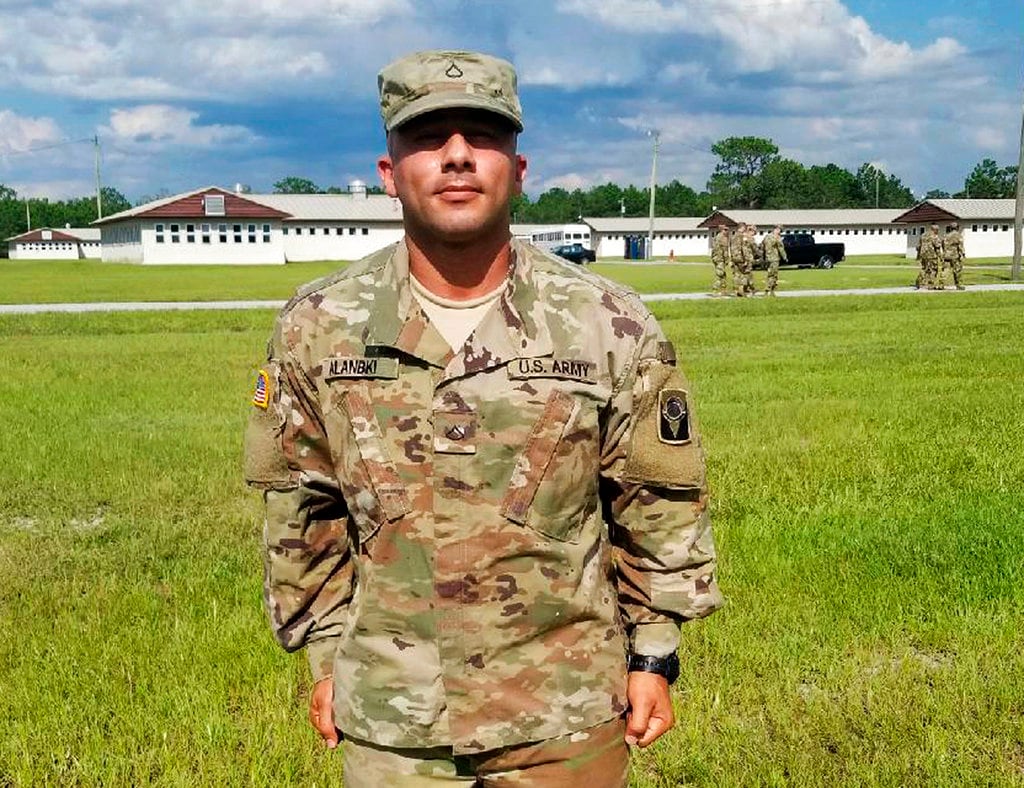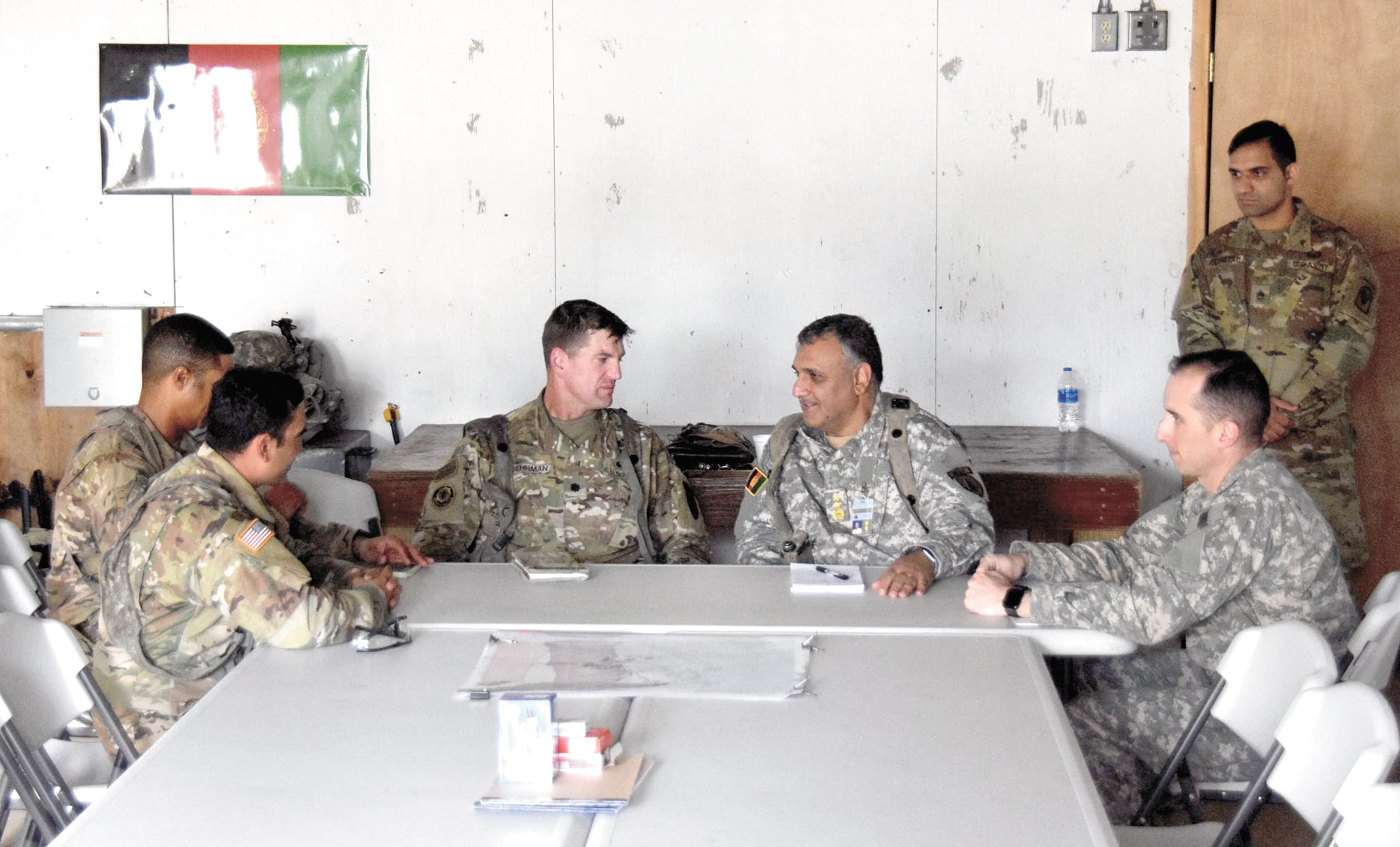The Army is cutting its interpreter-translator platoons and eliminating the associated job specialty for native or heritage Arabic, Dari and Pashto speakers.
The move is part of the military’s overall shift from counterinsurgency missions to multi-domain operations in support of large-scale combat, Army spokeswoman Maj. Jackie Wren wrote in an email response.
The 09L program was established in 2003 to provide Arabic, Dari and Pashto native and heritage speakers to support Army operations in Afghanistan and Iraq, Wren said.
The Army plans to retain soldiers holding the Military Occupational Specialty coded 09L through reclassification if qualified, she added.
RELATED

Currently, 177 soldiers hold the 09L MOS which will be deleted by May 1, 2022. Soldiers with this MOS have until May 2023 to reclassify into a new MOS, Wren told Army Times.
“Though the Army is eliminating this MOS, positions within Military Intelligence or Special Operation Forces may be available to these soldiers based on their aptitude and in accordance with security requirements,” Wren said. “Leaders are informing these soldiers of this change, and the soldiers are being provided with career counseling and educational support to assist in the transition to new career fields that allow them to continue their service with the Army.”
The Army holds a number of language-related jobs.
One is a skilled linguist, which falls under the intelligence 35 MOS series and uses soldiers trained in the target language for both strategic and tactical positions.
Typically, the linguist translates classified documents and other materials but can communicate directly with foreign-language speakers in a military capacity.
There are also voice interceptor roles in which a trained linguist listens to audio traffic to decipher what’s being said for intelligence gathering purposes.

The 09L program is used for interpreting or translating communications between English speakers and foreign-language speakers. They also assist soldiers with familiarization training in a foreign language and cultural awareness, according to the Army’s website.
Soldiers in the 09L program also assist at security checkpoints, provide interpretation services for Army public affairs offices and assist military contracting officers with purchase transactions, among other duties.
The Defense Language Institute, the center of language training for all of the armed services, offers instruction in 13 languages and regional variations of Arabic for 35-series linguists. It currently offers training also in Pashto, but not Dari, according to its website.
Training ranges from as short as a 36-week course in French to a 64-week course in Arabic. There is no current plan to grow the 35-series MOS linguists, Wren said.
“The Army’s language support is largely contracted. Uniformed language support, while small, provides an important capability with security clearance-holding linguists and linguists who can deploy to support contingency operations,” Wren said.
Army Times asked if the ground service was moving to add speakers of peer- and near-peer adversary languages such as Russian, Chinese or Persian Farsi.
“The Army’s G2 regularly reviews language requirements within existing structure across the Army and adjusts the requirements as needed for 35-series linguists,” Wren said. “There are no additional language skill authorizations as a result of these unit deactivations.”
Todd South has written about crime, courts, government and the military for multiple publications since 2004 and was named a 2014 Pulitzer finalist for a co-written project on witness intimidation. Todd is a Marine veteran of the Iraq War.





